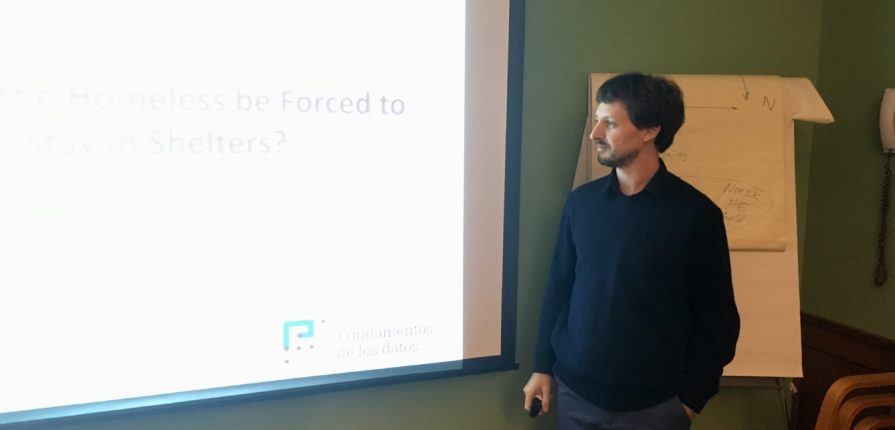Even though some paternalistic interventions can be morally troubling, they might be legitimate, argues guest researcher Cristan Pérez Muñoz.
Governments often intervene in the life of citizens by restricting or imposing certain actions. When the intent of such an intervention is to promote our welfare or to protect us from harm, but without regard to our consent, it is considered a paternalistic action.
Paternalistic actions are controversial, because they encroaches the autonomy and conflicts with the freedom of individuals or groups.
– The idea that the individual is the best judge of their well-being is key to the opposition to paternalistic actions by the government. However, this premise is difficult to sustain it empirically, argues Cristan Pérez Muñoz.
Long-term well-being
He is an associate professor at Pontificia Universidad Católica de Chile, and is studying coercive interventions towards the homeless population in South America. Pérez Muñoz visited Bergen i September 2019 as a guest researcher, and gave a lecture based on his research where he defended coercive interventions.
– We should accept limitations to the short-term freedom of the homeless, in favor of improving their mid-and long-term well-being. However, the intervention must meet certain criteria to be justifiable.
Important ethical question
Exposure to extreme weather — such as heavy storms, flooding, and heat waves—is a serious risk factor that increases the mortality of the homeless around the world.
– In the United States, for example, about seven hundred homeless annually die from hypothermia. Likewise, in the South Cone in Latin America, the problem of homeless dying from exposure to cold weather is routinely reported during the winter season. This raises an important ethical question, namely, to what extent the state should force the homeless to stay in shelters during extreme weather, says Pérez Muñoz.
He explains that his research is relevant for the general debate about whether paternalistic interventions to assist persons who refuse an offer of assistance should be accepted.
– Even though the Centre focus on paternalistic interventions aimed at promoting children’s welfare, on a more general level we are studying the same normative problems. I definitely benefited from my stay in Bergen, and it was very interesting to discuss with scholars interested in these questions.
More information:
- Research profile: Cristan Pérez Muñoz
- Presentation, Bergen 2019: Should the Homeless be Forced to Stay in Shelters?


